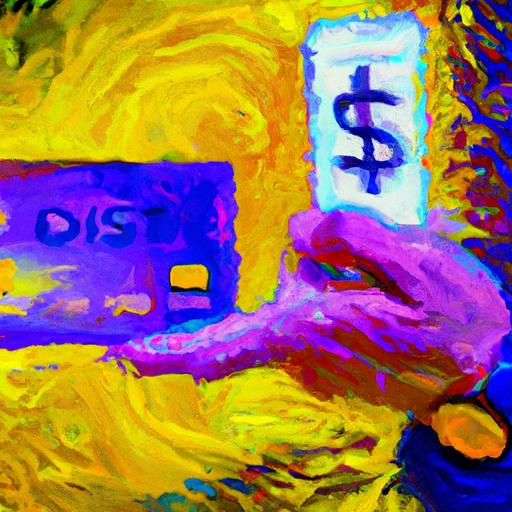Last Updated on February 6, 2024 by LiveCasinoDealer
Live Dealer Online Casinos in Ireland for Irish & International Players
- Introduction
- How to Deposit Money by Phone: A Step-by-Step Guide
- What Are the Benefits of Depositing Money by Phone?
- What Are the Risks of Depositing Money by Phone?
- How to Choose the Right Phone Banking Service for Your Needs
- What Are the Different Types of Phone Banking Services?
- How to Maximize Your Phone Banking Experience
- What Are the Different Fees Associated with Phone Banking?
- How to Troubleshoot Common Phone Banking Issues
- What Are the Best Practices for Making Phone Banking Deposits?
- Q&A
- Conclusion
“Deposit Anywhere, Anytime with How Much Can You Deposit By Phone!”
Introduction
Depositing money into your bank account by phone is a convenient way to manage your finances. It allows you to quickly and easily transfer funds from one account to another without having to visit a bank branch or ATM. With the right information, you can deposit money into your account by phone in just a few minutes. This article will explain how much you can deposit by phone, the different methods available, and the fees associated with each.
How to Deposit Money by Phone: A Step-by-Step Guide
Depositing money by phone is a convenient way to manage your finances. Whether you need to make a payment or transfer funds, this guide will walk you through the steps of depositing money by phone.
Step 1: Contact Your Bank. Before you can deposit money by phone, you’ll need to contact your bank and set up a phone banking account. This will allow you to access your account information and make deposits over the phone.
Step 2: Gather Your Information. Before you make a deposit, you’ll need to have the following information ready: your bank account number, the amount of money you want to deposit, and the account you want to deposit the money into.
Step 3: Call Your Bank. Once you have all the necessary information, call your bank’s phone banking service. You’ll be asked to provide your account information and the amount of money you want to deposit.
Step 4: Confirm Your Deposit. Once you’ve provided all the necessary information, your bank will confirm the deposit. Make sure to keep a record of the transaction for your records.
Step 5: Check Your Balance. After you’ve made the deposit, check your balance to make sure the money has been deposited correctly.
Depositing money by phone is a convenient way to manage your finances. With this step-by-step guide, you’ll be able to make deposits quickly and easily.
What Are the Benefits of Depositing Money by Phone?
Depositing money by phone offers a number of benefits for those who need to make quick and secure payments. By using this method, individuals can save time and money, as well as enjoy the convenience of being able to make payments from anywhere.
One of the main advantages of depositing money by phone is that it is a fast and secure way to make payments. This method eliminates the need to physically visit a bank or other financial institution to make a deposit. Instead, individuals can simply call their bank or financial institution and provide the necessary information to make a deposit. This eliminates the need to wait in line or fill out paperwork, saving time and effort.
Another benefit of depositing money by phone is that it is a secure way to make payments. Banks and other financial institutions use secure encryption technology to protect the information provided by customers. This ensures that the information is kept safe and secure, reducing the risk of fraud or identity theft.
Finally, depositing money by phone is a convenient way to make payments. Individuals can make payments from anywhere, as long as they have access to a phone. This eliminates the need to travel to a bank or other financial institution, saving time and money.
Overall, depositing money by phone offers a number of benefits for those who need to make quick and secure payments. By using this method, individuals can save time and money, as well as enjoy the convenience of being able to make payments from anywhere.
What Are the Risks of Depositing Money by Phone?
Depositing money by phone can be a convenient way to manage your finances, but it is important to be aware of the potential risks associated with this method. One of the main risks of depositing money by phone is the potential for fraud. If you are not careful, you could be the victim of a scam or identity theft. Additionally, if you are using a third-party service to deposit money, there is a risk that the service could be unreliable or not secure. It is important to research any third-party services before using them to ensure that they are reputable and secure. Finally, there is always the risk of human error when depositing money by phone. If you make a mistake when entering your information, you could end up depositing the wrong amount or to the wrong account.
Overall, depositing money by phone can be a convenient way to manage your finances, but it is important to be aware of the potential risks associated with this method. Be sure to research any third-party services before using them and double-check your information before submitting it to avoid any potential errors.
How to Choose the Right Phone Banking Service for Your Needs
Choosing the right phone banking service for your needs can be a daunting task. With so many options available, it can be difficult to know which one is best for you. However, by taking the time to consider your needs and the features offered by different services, you can make an informed decision that will help you get the most out of your phone banking experience.
First, consider the type of services you need. Do you need a basic checking account, or do you need more advanced features such as online bill pay or investment options? Knowing what services you need will help you narrow down your choices.
Next, consider the fees associated with each service. Some services may charge a monthly fee, while others may offer free services. Make sure to compare the fees associated with each service to ensure you are getting the best value for your money.
Finally, consider the customer service offered by each service. Look for services that offer 24/7 customer support, as well as helpful online resources. This will ensure that you can get help when you need it, and that you can access the information you need quickly and easily.
By taking the time to consider your needs and the features offered by different services, you can make an informed decision that will help you get the most out of your phone banking experience. With the right phone banking service, you can enjoy the convenience and security of banking from the comfort of your own home.
What Are the Different Types of Phone Banking Services?
Phone banking services are a convenient way for customers to access their financial accounts and manage their finances without having to visit a physical branch. These services allow customers to check their account balances, transfer funds, pay bills, and more. There are several different types of phone banking services available, each offering different features and benefits.
One type of phone banking service is automated phone banking. This type of service allows customers to access their accounts through an automated system. Customers can use this system to check their account balances, transfer funds, and pay bills. This type of service is often available 24 hours a day, seven days a week.
Another type of phone banking service is live customer service. This type of service allows customers to speak directly with a customer service representative. Customers can use this service to ask questions about their accounts, request account information, and make changes to their accounts. This type of service is often available during regular business hours.
A third type of phone banking service is mobile banking. This type of service allows customers to access their accounts through their mobile devices. Customers can use this service to check their account balances, transfer funds, pay bills, and more. This type of service is often available 24 hours a day, seven days a week.
Finally, some banks offer telephone banking services that allow customers to access their accounts through a telephone keypad. Customers can use this service to check their account balances, transfer funds, pay bills, and more. This type of service is often available 24 hours a day, seven days a week.
Overall, there are several different types of phone banking services available, each offering different features and benefits. Customers should research the different types of services available to determine which one best meets their needs.
How to Maximize Your Phone Banking Experience
Phone banking is a great way to manage your finances and stay on top of your budget. With the right strategies, you can maximize your phone banking experience and make the most of your time. Here are some tips to help you get the most out of your phone banking experience.
1. Have a plan. Before you start your phone banking session, take a few minutes to plan out what you want to accomplish. Make a list of the tasks you need to complete and prioritize them. This will help you stay focused and organized during your phone banking session.
2. Take advantage of automated services. Many banks offer automated services that can help you save time. For example, you can use automated services to transfer funds, pay bills, and check your account balance. Taking advantage of these services can help you save time and get more done during your phone banking session.
3. Ask questions. Don’t be afraid to ask questions if you don’t understand something. The customer service representatives are there to help you, so don’t hesitate to ask for clarification if you need it.
4. Take notes. It’s a good idea to take notes during your phone banking session. This will help you remember important information and keep track of your progress.
5. Stay organized. Make sure to keep all of your paperwork and documents organized. This will help you stay on top of your finances and make it easier to find the information you need.
By following these tips, you can maximize your phone banking experience and make the most of your time. With the right strategies, you can stay organized, save time, and get more done during your phone banking session.
What Are the Different Fees Associated with Phone Banking?
Phone banking is a convenient way to manage your finances, but it does come with some associated fees. Here are some of the different fees you may encounter when using phone banking services:
1. Transaction Fees: Depending on the type of transaction you are making, you may be charged a fee for using phone banking services. This could include fees for transferring money, making payments, or withdrawing cash.
2. Maintenance Fees: Some banks may charge a monthly or annual fee for using their phone banking services.
3. Interest Rates: If you are using a loan or credit card through phone banking, you may be charged interest on the balance.
4. Overdraft Fees: If you overdraw your account, you may be charged an overdraft fee.
5. Late Payment Fees: If you make a payment after the due date, you may be charged a late payment fee.
By understanding the different fees associated with phone banking, you can make sure you are making the most of your financial services.
How to Troubleshoot Common Phone Banking Issues
Troubleshooting common phone banking issues can be a daunting task. However, with the right approach, you can quickly and easily resolve any issues you may be having. Here are some tips to help you troubleshoot common phone banking issues:
1. Check your connection: Make sure your phone is connected to a reliable internet connection. If you are using a cellular connection, try switching to a Wi-Fi connection.
2. Check your settings: Make sure your phone banking settings are correct. This includes ensuring that your phone number is correct, that you have enabled two-factor authentication, and that you have enabled any other security features your bank may offer.
3. Check your account: Make sure your account is in good standing. This includes ensuring that you have sufficient funds in your account and that you have not exceeded any of your account limits.
4. Contact your bank: If you are still having issues, contact your bank directly. They will be able to provide you with more detailed information and help you troubleshoot any issues you may be having.
By following these tips, you can quickly and easily troubleshoot common phone banking issues. With the right approach, you can ensure that your phone banking experience is as smooth and secure as possible.
What Are the Best Practices for Making Phone Banking Deposits?
Making phone banking deposits is a convenient way to manage your finances. To ensure that your deposits are secure and successful, here are some best practices to follow:
1. Make sure you have the correct account information. Before making a phone banking deposit, double-check that you have the correct account number and routing number. This will ensure that your deposit is sent to the right account.
2. Have all the necessary information ready. Have your account information, deposit amount, and any other required information ready before you make the call. This will help the process go more smoothly.
3. Follow the instructions carefully. When making a phone banking deposit, it’s important to follow the instructions carefully. This will help ensure that your deposit is successful.
4. Confirm the deposit. After making the deposit, confirm that it was successful. This will help you avoid any potential issues with the deposit.
By following these best practices, you can ensure that your phone banking deposits are secure and successful.
Q&A
1. How much can I deposit by phone?
The amount you can deposit by phone will depend on the bank or financial institution you are using. Generally, most banks and financial institutions will allow you to deposit up to $2,500 per day. However, some may have higher or lower limits. It is best to contact your bank or financial institution directly to find out their specific deposit limits.
Conclusion
In conclusion, depositing money by phone is a convenient and secure way to add funds to your bank account. It is a great option for those who don’t have access to a bank branch or ATM, or who don’t want to wait in line. The amount you can deposit by phone will depend on your bank’s policies, but most banks allow you to deposit up to $2,500 per day.



